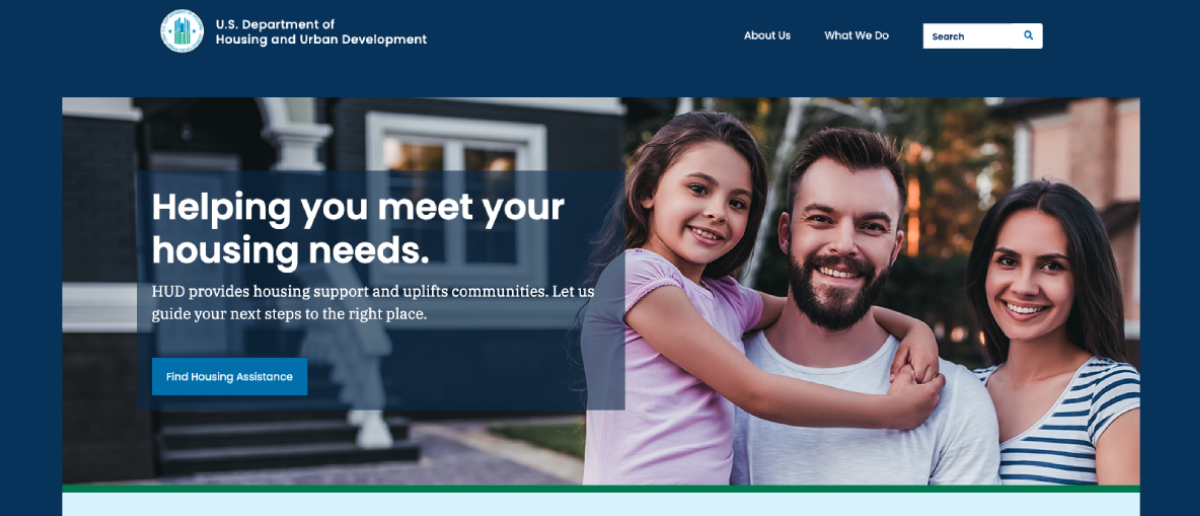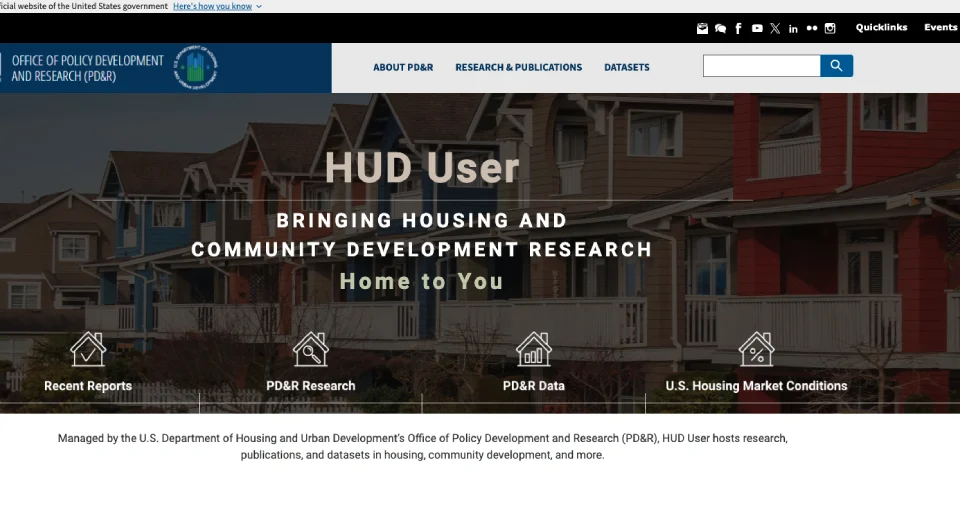Trusted Resource: HUD (U.S. Department of Housing and Urban Development)
HUD.gov
The U.S. Department of Housing and Urban Development (HUD) is a cornerstone in helping Americans find affordable housing. For decades, it has worked to provide safe, decent, and affordable housing options. HUD also focuses on fighting discrimination, aiding community development, and responding to natural disasters. Their website, hud.gov, is an essential resource for anyone seeking housing assistance, rental advice, or information on housing laws.
HUD is not just a website; it’s a federal agency dedicated to building strong, sustainable communities. The programs, resources, and protections it offers make it one of the most trusted sources for housing information in the U.S.
What HUD Offers
HUD’s services cover a wide range of needs. Whether you’re looking for a place to rent, planning to buy a home, or needing help after a disaster, HUD has resources for you. Below are some key areas HUD supports:
Rental Assistance Programs
HUD’s rental assistance programs are lifelines for many low-income families, the elderly, and individuals with disabilities.
- Housing Choice Voucher Program (Section 8): This program helps people afford safe and sanitary housing in the private market.
- Public Housing: HUD works with local housing authorities to provide low-cost housing options.
- Project-Based Rental Assistance: This option ties rental assistance to specific properties.
You can find more information about these programs under the “Find Housing Assistance” section on hud.gov.
Homeownership Opportunities
HUD helps people achieve the dream of owning a home.
- FHA Loans: Federal Housing Administration (FHA) loans make buying a home more accessible with lower down payments and relaxed credit requirements.
- Homeownership Counseling: HUD-approved housing counselors provide guidance on budgeting, saving, and understanding the homebuying process.
- Assistance with Down Payments: HUD offers programs to help with the upfront costs of buying a home.
Fighting Housing Discrimination
HUD enforces the Fair Housing Act, which protects people from discrimination when renting, buying, or securing financing for housing. If you believe you’ve experienced discrimination, HUD’s website guides you on how to file a complaint. Their team investigates claims and takes action to ensure fair treatment for everyone.
HUD protects against discrimination based on:
- Race or ethnicity
- Religion
- Gender
- Disability
- Family status
- National origin
Filing a complaint is simple. HUD’s website offers step-by-step instructions and resources to help you understand your rights.
Support for Community Development
HUD doesn’t just help individuals; it supports entire communities through various programs.
- Community Development Block Grants (CDBG): These grants fund local projects like infrastructure improvements, public facilities, and economic development.
- HOME Investment Partnerships Program: This program helps communities expand affordable housing options for low-income residents.
- Neighborhood Stabilization Program (NSP): HUD helps communities rebuild after foreclosures or economic downturns.
These programs create stronger neighborhoods and improve quality of life for residents.
Disaster Assistance and Relief
Natural disasters can leave families without homes. HUD steps in to provide support when it’s needed most.
- Disaster Housing Assistance: HUD helps families secure temporary housing after events like hurricanes, floods, or wildfires.
- Disaster Relief Grants: These funds help communities rebuild after disasters.
HUD’s disaster resources include guides on applying for assistance and finding temporary shelters.
Tools and Features on HUD’s Website
HUD’s website, hud.gov, is packed with tools to make finding housing help easy.
Key Features
- Housing Assistance Locator: Find programs and resources tailored to your needs.
- Fair Housing Complaint Form: Quickly report discrimination issues.
- Disaster Resources Section: Stay informed during emergencies.
- Data and Research: Access reports and data on housing trends and policies.
- Local HUD Office Locator: Find offices near you for in-person assistance.
HUD’s website is available in multiple languages, ensuring accessibility for diverse communities.
Avoiding Housing Scams with HUD
Housing scams are everywhere. Fake rental listings, bogus Section 8 offers, and fraudulent landlords can trap unsuspecting people. HUD helps you avoid these scams with verified resources and clear guidance.
Tips to Avoid Scams:
- Never pay for Section 8 housing vouchers—they’re free.
- Verify all listings through trusted sources like HUD or local housing authorities.
- Watch out for landlords asking for payments upfront without showing the property.
HUD’s website also provides tools to report scams and links to agencies that can help you recover.
Frequently Asked Questions
Who qualifies for HUD programs?
HUD programs are designed for low-income families, seniors, and people with disabilities. Eligibility depends on income, family size, and location.
Does HUD charge for its services?
No, HUD services are free. Be cautious of anyone asking for payments in HUD’s name.
Can HUD help with eviction?
Yes, HUD offers resources like emergency rental assistance and access to housing counselors who can help you negotiate with landlords.
Why HUD is Essential
Millions of Americans depend on HUD every year. Whether it’s offering affordable housing, supporting disaster recovery, or ensuring fair treatment, HUD plays a vital role in the U.S. housing market.
What Makes HUD Unique?
- It’s backed by the U.S. government.
- Resources are free and easy to access.
- Programs are designed to help people of all backgrounds.
If you’re looking for trustworthy housing help, start with HUD. Visit hud.gov today to explore your options.






